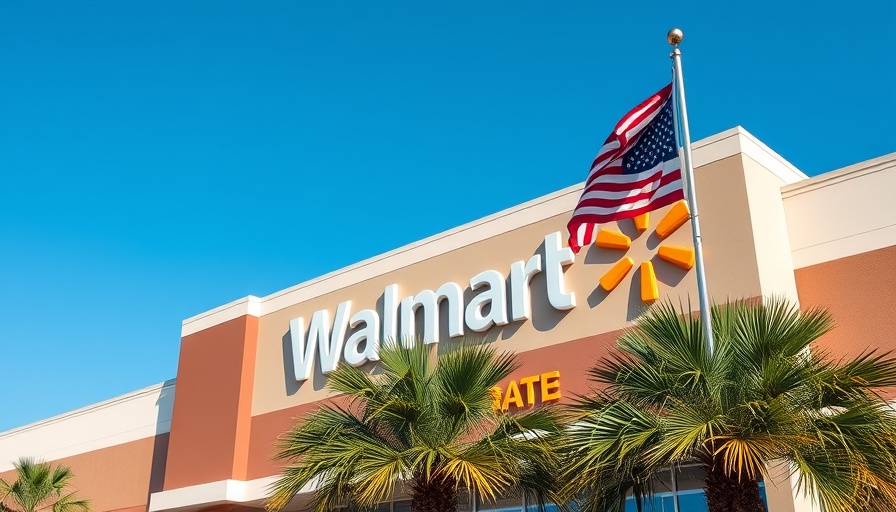
The Uncertainty of Tariffs: A Game-Changer for Retail
Walmart, known for its commitment to low prices, has hit a bump in the road. The giant retailer recently pulled its guidance for first-quarter operating income due to the uncertainty surrounding newly implemented tariffs by President Donald Trump. This bold move is unprecedented and reflects the growing concern among businesses regarding the impact of international trade policies on their operations.
Why Tariffs Matter to Everyday Consumers
When tariffs on imports from China and Vietnam came into effect, Walmart anticipated a range of operating income growth from 0.5% to 2%. However, maintaining its flexibility to invest in pricing was more critical. This suggests that consumers could face higher prices in the future as the retailer may need to adjust its pricing strategy in response to these financial pressures.
Voices from the Industry: A Widespread Concern
Walmart isn't alone in feeling the pressure. Other major U.S. companies, like Delta Airlines, have also reported that their businesses are being affected by the uncertainties presented by these tariffs. The more companies speak out, the clearer it becomes how significant the ripple effect can be across various sectors.
The Bigger Picture: What’s Next for Retail?
As tariffs disrupt supply chains and increase costs, retailers are left navigating an unpredictable landscape. Moving forward, businesses must develop adaptive strategies to respond to these challenges. For Walmart, this may involve not just adjusting prices but rethinking supply chain logistics or exploring different sourcing strategies to mitigate the financial impact of tariffs.
Take Action: Be Prepared for Economic Shifts
As we witness these changes unfold, it is essential for business leaders and managers to stay informed and adapt. This scenario highlights the necessity of preparing for potential economic shifts and their effects on pricing and consumer behavior.
 Add Row
Add Row  Add
Add 










 Add Row
Add Row  Add
Add 

Write A Comment